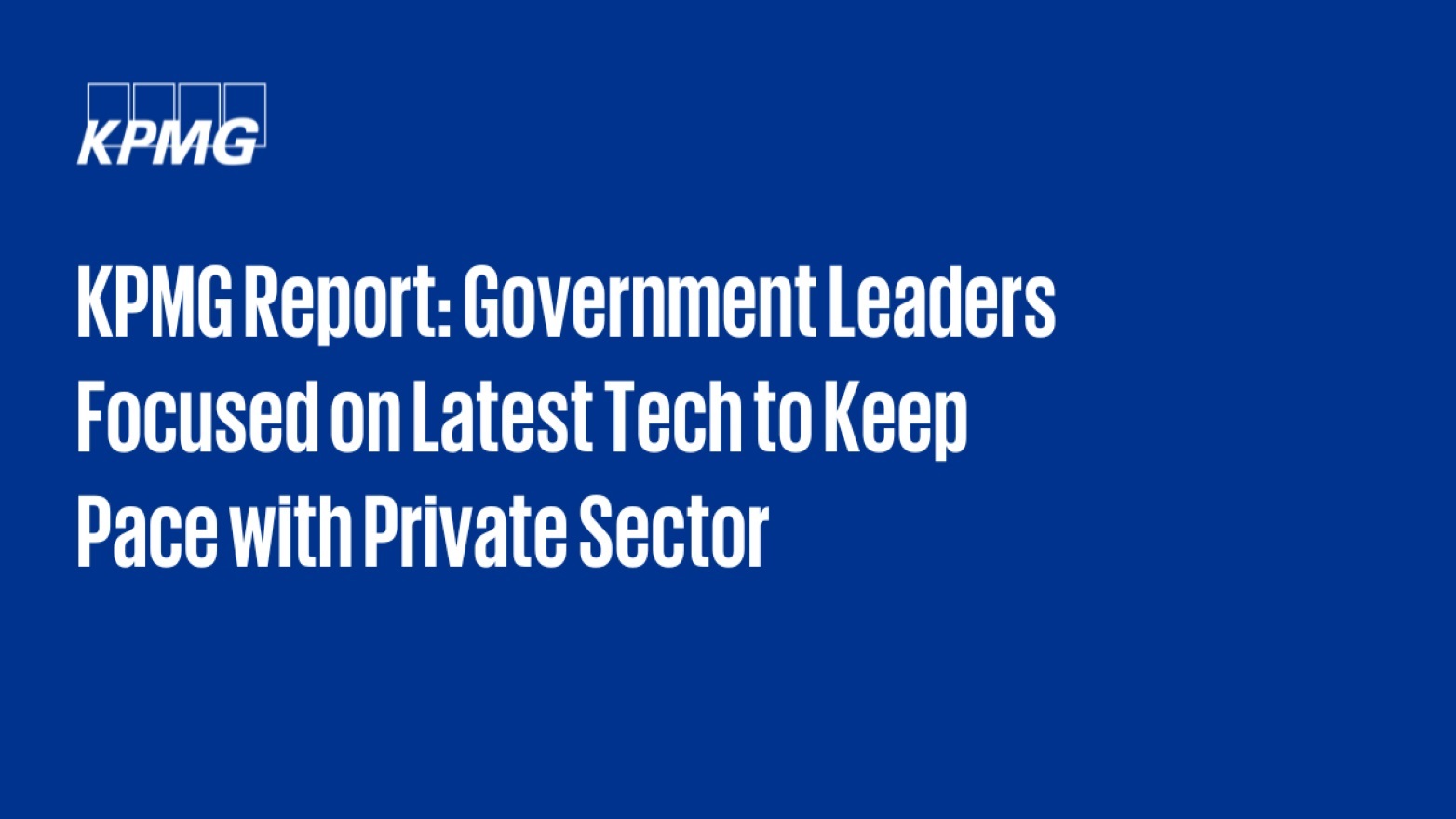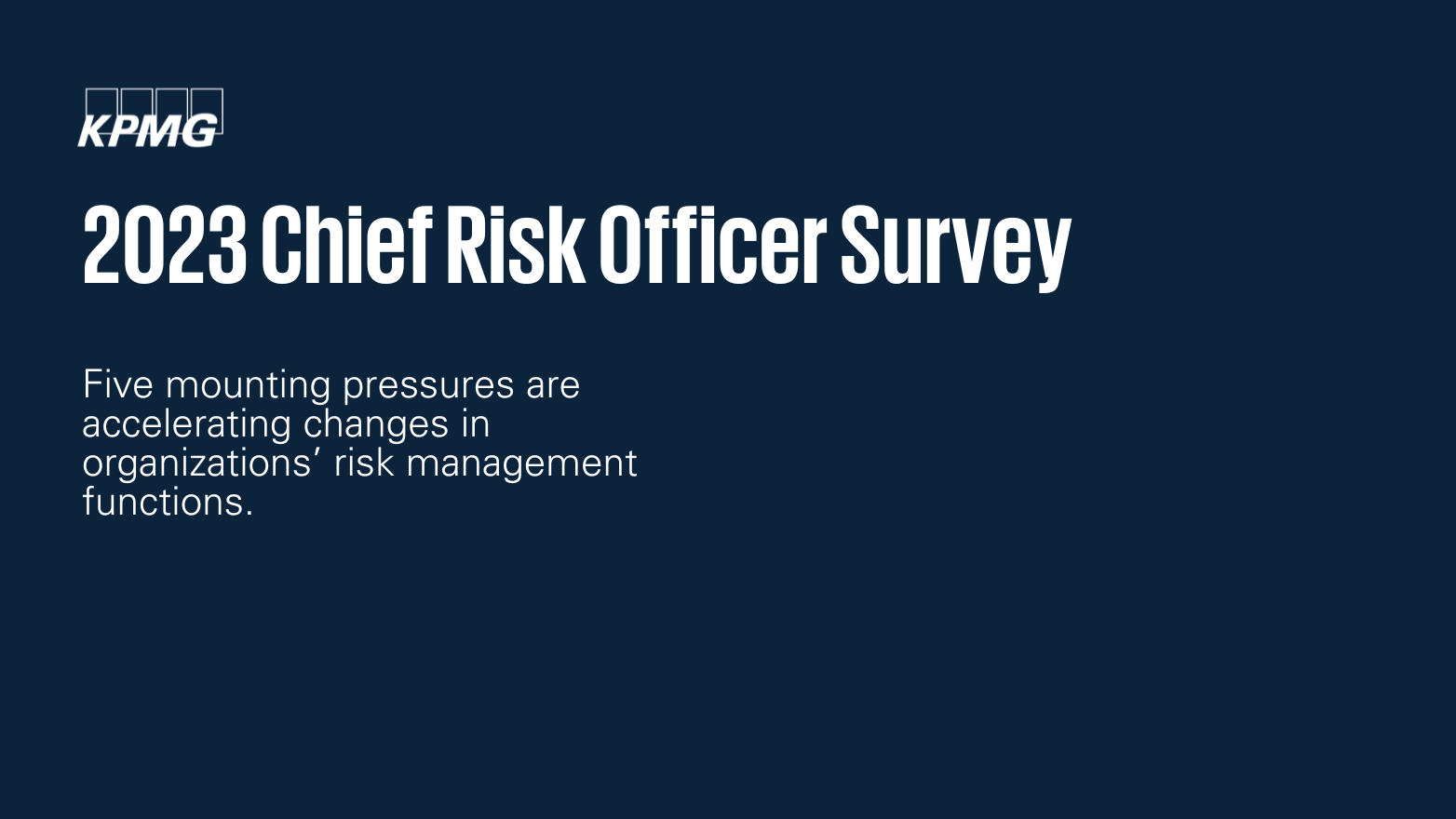Regulatory intensity is here to stay
10 key regulatory challenges financial services organizations will face in 2024 & how they can strengthen the cards they hold
The financial services industry is experiencing a level of regulatory intensity rarely seen before – combining a high volume of regulatory issuances, complexity and breadth of regulatory supervision, and the impact that these changes impose across the organization - according to the new KPMG US Ten Key Regulatory Challenges of 2024 report. The report predicts that in 2024, the intensity of supervision and regulation will continue with marked changes to reviews and examinations, and a focus on risk management and governance.
“Regulatory intensity, announced in 2022 and felt in 2023, will hit with full-force in 2024,” said Amy Matsuo, Principal & National Leader Regulatory Insights. “Regulators’ references to ‘repeat offenders’ and ‘persistent weaknesses’ make clear that ‘broken-window’ findings of the past are now seen by regulators as major supervisory and enforcement matters. This is a remarkable regulatory environment, with complexity and impacts across all areas of the business.”
(note: Additional comments from KPMG LLP financial services leaders are below)
5 key takeaways for financial services organizations from the KPMG US Ten Key Regulatory Challenges of 2024 report:
1
2
3
4
5
Supported by the KPMG Regulatory Insights Barometer, which assesses areas of upcoming regulatory pressure and direction of change, the report identifies 10 key regulatory challenge areas financial services organizations will face in 2024:
1) Regulatory Intensity - Given the continued economic fluctuations, election-year uncertainties and legal actions, organizations will be facing high regulatory intensity particularly in the areas of risk management/governance, financial risk, and data.
Risk Management & Governance:
2) Risk Standards – Regulators are signaling expectations for heightened risk management standards, including increased focus on persistent weaknesses, repeat offenses, and organizations that may be "too big to manage." Supervisory intensity and enforcement, agility, and risk mitigation will be emphasized, and robust risk accountability and governance will be expected.
3) Risk Sustainability - Regulators will require evidence of sustainability in risk management and governance processes, including risk culture, risk quantification and integration, and business changes. They will also evaluate organizations' management and remediation of issues, including issue identification, risk assessment, and effective challenge.
Financial Risk:
4) Growth & Resiliency - There will be increased regulatory scrutiny of liquidity risk management and resolution planning for organizations of all sizes. This includes assessments of funding plans, model risk and interest rate risk management, and operational resiliency. From the perspective of orderly resolutions, regulators are also considering M&A activity, tech and operational resiliency, and remediation options for organizations that repeatedly fail to meet supervisory expectations.
5) Capital & Valuations – There will be escalating regulatory attention on risk calculations, stress testing, planning and broad risk management – across financial risks as well as operational risk. Changes will implement the final components of the Basel III agreement and are expected to vary for each financial institution based on its activities and risk profile. Changes in interest rates will focus regulators on stress testing and scenario analysis to identify and measure the impact of credit vulnerabilities.
Consumer/Investor Protection:
6) Threat Actors’ – There are expanded expectations in detecting and mitigating financial crime, fraud, and misconduct while maintaining consumer protections. Regulators will scrutinize data traceability, transaction monitoring, and expanded threats in financial crime, while focusing on threat detection and monitoring, mature insider risk programs, surveillance programs, the presence of a culture of compliance and individual accountability.
7) Fairness - Regulators will continue to assess the fairness of financial market products and services, with a focus on access, treatment, and product risks. They will expand their oversight from product risk to include execution risk and assess whether products and services are fulfilled fairly and consistently with the terms and statements provided to customers.
Tech & Data Risk:
8) Responsible Systems – Existing rules will continue to be applied to innovative technologies such as AI/Gen AI, automated systems and predictive analytics, focusing on risk management, fairness, and consumer protection and organizations should anticipate regulatory attention in 2024 in these areas.
9) Security & Privacy - Regulators will focus on strengthening risk management and governance around data security, management, and privacy. Regulators will also assess evolving processes, lifecycle operations, and data brokering practices.
10) Data - An increased focus on data governance, data risk and controls, and data lifecycle management, will continue with scrutiny on organizations' understanding and identification of risks around data collection, use, sharing, and protection.
Additional KPMG financial services leaders share Amy Matsuo’s views on the intensity of the regulatory environment:
Peter Torrente, National Sector Leader, Banking & Capital Markets, KPMG U.S., said, “Banks are navigating a sea of uncertainty ranging from geopolitical risks, to an evolving regulatory landscape and challenging economic outlook. Quickly responding and adapting to the short-term challenges of today will be essential for banks seeking to move forward with their longer term aspirations.”
Ed Chanda, National Sector Leader, Insurance, KPMG U.S., said, “Regulation in the insurance sector is moving at an incredible pace. With new risks and challenges, plus an uncertain economy, regulators find themselves in the difficult position of attempting to balance consumer needs and industry resilience."
Nalin Kumra, Advisory Industry Leader for Capital Markets and Asset Management, KPMG U.S., said, “Given the tightening in credit markets and the slowing in transactions in capital markets, coupled with past industry events, institutions are seeing increased regulatory focus on counterpart credit risk and the ensuring of integrity in market operations.”
Methodology:
The KPMG Regulatory Insights Barometer uses a 10-point scale to assess upcoming regulatory pressure and direction of change. It assesses three attributes for each challenge area: volume, complexity, and impact, and combines them to arrive at a single weighted average indicator of regulatory intensity.
To learn more about the KPMG US Ten Key Regulatory Challenges of 2024 report, or to arrange an interview with Amy Matsuo, please contact Andreas Marathovouniotis.
Explore more

KPMG Report: Govt. Leaders Focused on Latest Tech to Keep Pace with Private Sector
Focused on keeping pace with their private sector peers, government leaders are seeking to upgrade their technology capabilities while also addressing the evolving challenges faced by their constituents according to KPMG’s new report.

2023 Chief Risk Officer Survey
CROs said that the greatest challenges in risk management also rank within the top areas they feel least prepared to address.

KPMG Study: CEOs Focused on Game-Changing Investments in M&A and Generative AI to Drive Growth
CEO Confidence in Long-Term Growth Prospects of Their Companies More Subdued. Myriad Risks to Growth include Geopolitics and Political Uncertainty, Disruptive Technology

